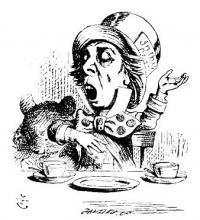A case of emission and injection
In what might win “Most Bizarre Attempt at Home Medicine” of 2019, a 33-year-old Irish man was hospitalized after injecting himself with his own semen … in his arm … multiple times … to reduce back pain. Whew. Does this count as holistic medicine?
This at-home remedy did not cure his back pain, shockingly enough. The patient instead developed a subcutaneous abscess after a year and a half of monthly intramuscular and intravenous injections, during which the semen has leaked into the soft tissues. He reported to a Dublin hospital after suffering severe back pain and a swollen arm, and eventually revealed to doctors his miracle cure.
The doctors did some Googling and found studies where rats and rabbits were injected with semen – possibly the research that inspired this trailblazer. Or, possibly, this was just an extreme case of reduce, reuse, and recycle.
In case you’re concerned, the man was given a course of more traditional medicine, and his back pain improved greatly. The patient chose to discharge himself before doctors could drain the “local collection” – perhaps he was proud of his work.
Down the rabbit hole
Imagine sitting at your computer when suddenly the icons begin to move off the screen and hover directly in front of your eyes. Your first thought might be that someone spiked your morning coffee with acid – and you’re not far off.
This curious occurrence happened to a 54-year-old man who was diagnosed with the rare perceptual disorder Alice in Wonderland syndrome (AIWS). AIWS causes people to develop a misperception of their body or surrounding space, and can be caused by a number of things, including migraine.
In this case, the man’s LSD-like visions were caused by a glioblastoma in the left temporal-occipital region of the brain. Tumors there can interfere with spatial perception, hence the temporary trip down the rabbit hole for this patient. After chemotherapy and radiation, the tumor was defeated, and the patient is back to feeling happier than the Mad Hatter at a tea party.
Must have been some party
On Dec. 25 in the Vietnamese province of Quang Tri, a 48-year-old man was taken to a hospital with a case of alcohol poisoning. Specifically, his body contained more than 1,000 times the recommended limit of methanol.
While the two types of alcohol, ethanol and methanol, are both toxic to the human body to some degree, the liver processes methanol differently and more slowly, making it far more dangerous than ethanol, the key ingredient in commercially available alcoholic beverages. Methanol is found in bootleg liquor and in such products as gasoline, paint, ink, and cleaning products. It can cause blindness, nervous system depression, and death.
However, there is a happy ending to this story. To save their patient’s life, his doctors hit upon an ingenious solution – one that would make Homer Simpson proud.
They administered cans of beer.
When the man was admitted, the doctors immediately gave him 3 cans’ worth, and then transfused an additional 12 at the rate of 1 can per hour. The liver will always prioritize processing ethanol over methanol. By feeding the patient a steady stream of relatively friendly and ethanol-rich beer, the doctors had enough time to perform dialysis and remove the methanol from the man’s system.
So, as Homer himself might declare, here’s to alcohol – truly the cause of, and solution to, all of life’s problems.



